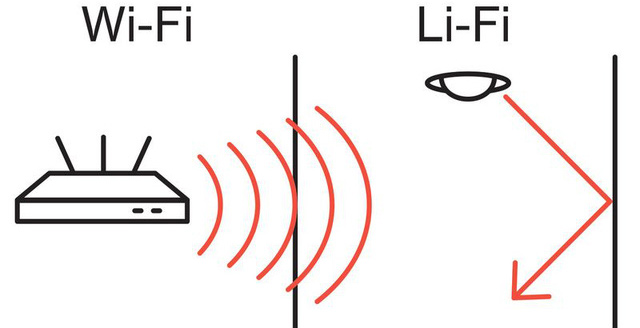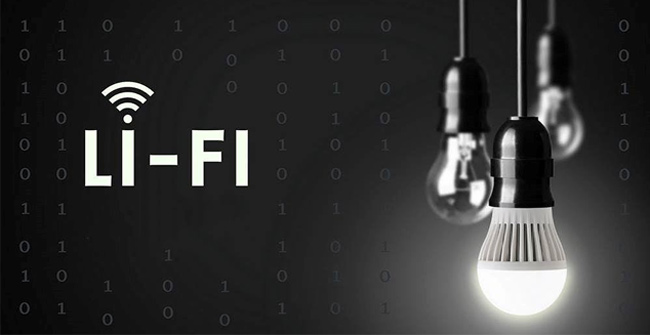Li-Fi, the technology to use LED bulbs to replace the Wi-Fi network tested in the real world
After years of existence in the concept of theory, Li-Fi finally - the technology of using light to combine infrared light to create an alternative Wi-Fi Internet has been Philips Lightning real-world experiment.
This Dutch electronics giant has actually tested the Li-Fi technology in a laboratory in Paris (France) to see how it works in the real world.
To set up a Li-Fi network, the light devices you want to have network coverage must be connected to the Internet cable. Inside the bulb fixture with wires, including a modem that converts the data packets and adjusts the LEDs for data transmission. A USB plugs into the laptop as a receiver and transmitter and uses an infrared LED to send feedback back to the built-in receiver in the luminaire.
The light is only transmitted in a straight line, does not penetrate the wall or furniture, so it will minimize the interference between devices. Compared to radio waves, Li-Fi is actually more useful when utilizing tight spaces, two computers in the same room, opposite each other can use the same bandwidth.

But that is only in theory, the fact that Li-Fi is still not a perfect substitute for Wi-Fi. Because if the light is weak, it will affect the connection between the transmitter and receiver. At the same time, this new technology also requires a USB to be plugged into the computer while Wi-Fi is already built-in. We can't even walk around the office with a smartphone that wants to keep a consistent data connection.

Currently, wifi technology is increasingly improved on bandwidth usage, especially when 5G network with practical benefits is about to be deployed. And the question is whether Li-Fi will ever be applied in the real world.
With this experiment, Philips Lightning wishes to find out if Li-Fi is a viable technology. Perhaps, for those with high security needs, Li-Fi is also considered a remarkable choice.
See more:
- YouTube announces new features, enabling users to livestream directly from the computer web browser
- After the scandal revealed data of 50 million accounts, social network users called to delete Facebook accounts
- Beware of fake iPhone messages, photos taken by iMessage online